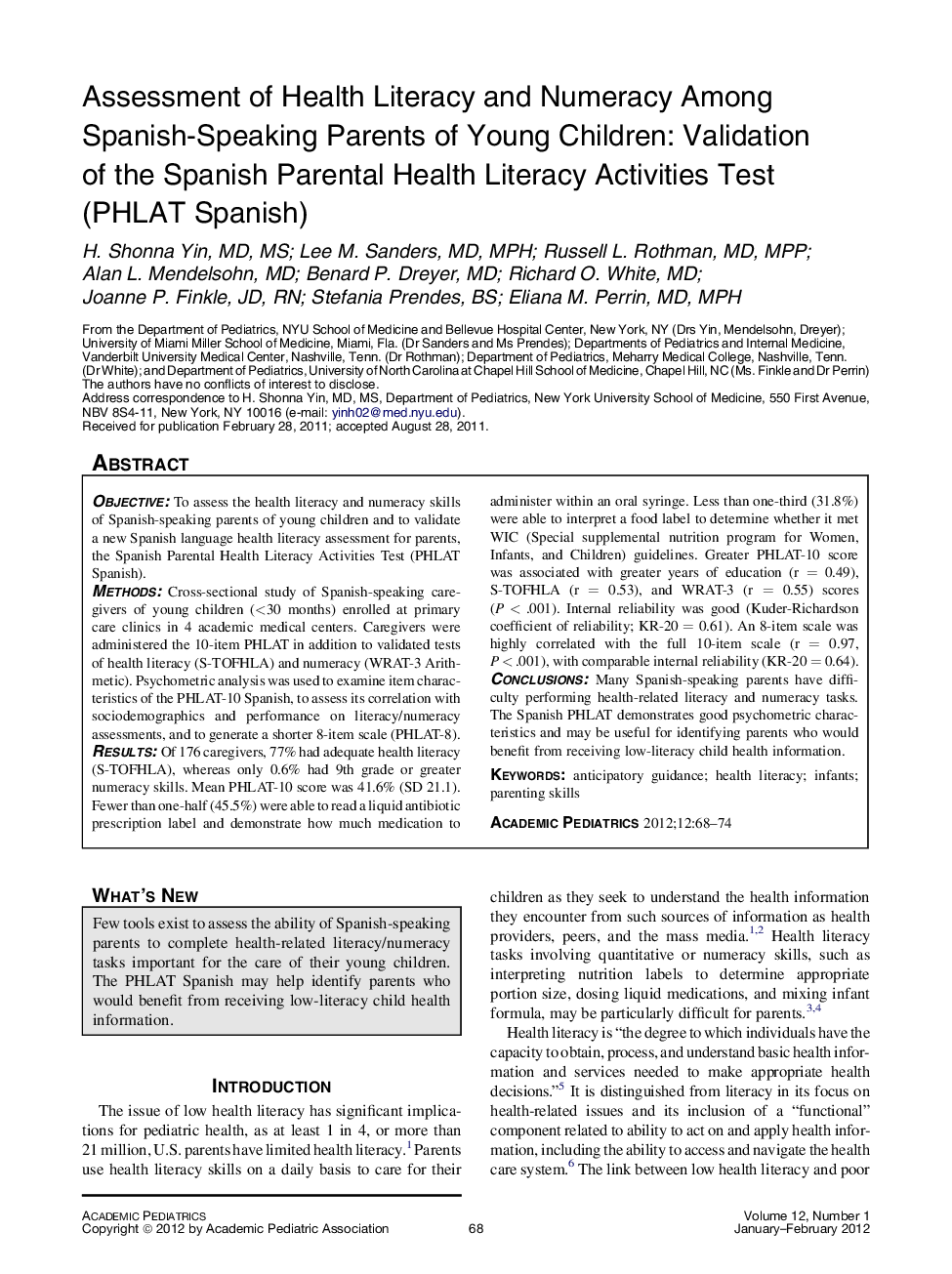| کد مقاله | کد نشریه | سال انتشار | مقاله انگلیسی | نسخه تمام متن |
|---|---|---|---|---|
| 4139420 | 1272206 | 2012 | 7 صفحه PDF | دانلود رایگان |

ObjectiveTo assess the health literacy and numeracy skills of Spanish-speaking parents of young children and to validate a new Spanish language health literacy assessment for parents, the Spanish Parental Health Literacy Activities Test (PHLAT Spanish).MethodsCross-sectional study of Spanish-speaking caregivers of young children (<30 months) enrolled at primary care clinics in 4 academic medical centers. Caregivers were administered the 10-item PHLAT in addition to validated tests of health literacy (S-TOFHLA) and numeracy (WRAT-3 Arithmetic). Psychometric analysis was used to examine item characteristics of the PHLAT-10 Spanish, to assess its correlation with sociodemographics and performance on literacy/numeracy assessments, and to generate a shorter 8-item scale (PHLAT-8).ResultsOf 176 caregivers, 77% had adequate health literacy (S-TOFHLA), whereas only 0.6% had 9th grade or greater numeracy skills. Mean PHLAT-10 score was 41.6% (SD 21.1). Fewer than one-half (45.5%) were able to read a liquid antibiotic prescription label and demonstrate how much medication to administer within an oral syringe. Less than one-third (31.8%) were able to interpret a food label to determine whether it met WIC (Special supplemental nutrition program for Women, Infants, and Children) guidelines. Greater PHLAT-10 score was associated with greater years of education (r = 0.49), S-TOFHLA (r = 0.53), and WRAT-3 (r = 0.55) scores (P < .001). Internal reliability was good (Kuder-Richardson coefficient of reliability; KR-20 = 0.61). An 8-item scale was highly correlated with the full 10-item scale (r = 0.97, P < .001), with comparable internal reliability (KR-20 = 0.64).ConclusionsMany Spanish-speaking parents have difficulty performing health-related literacy and numeracy tasks. The Spanish PHLAT demonstrates good psychometric characteristics and may be useful for identifying parents who would benefit from receiving low-literacy child health information.
Journal: Academic Pediatrics - Volume 12, Issue 1, January–February 2012, Pages 68–74